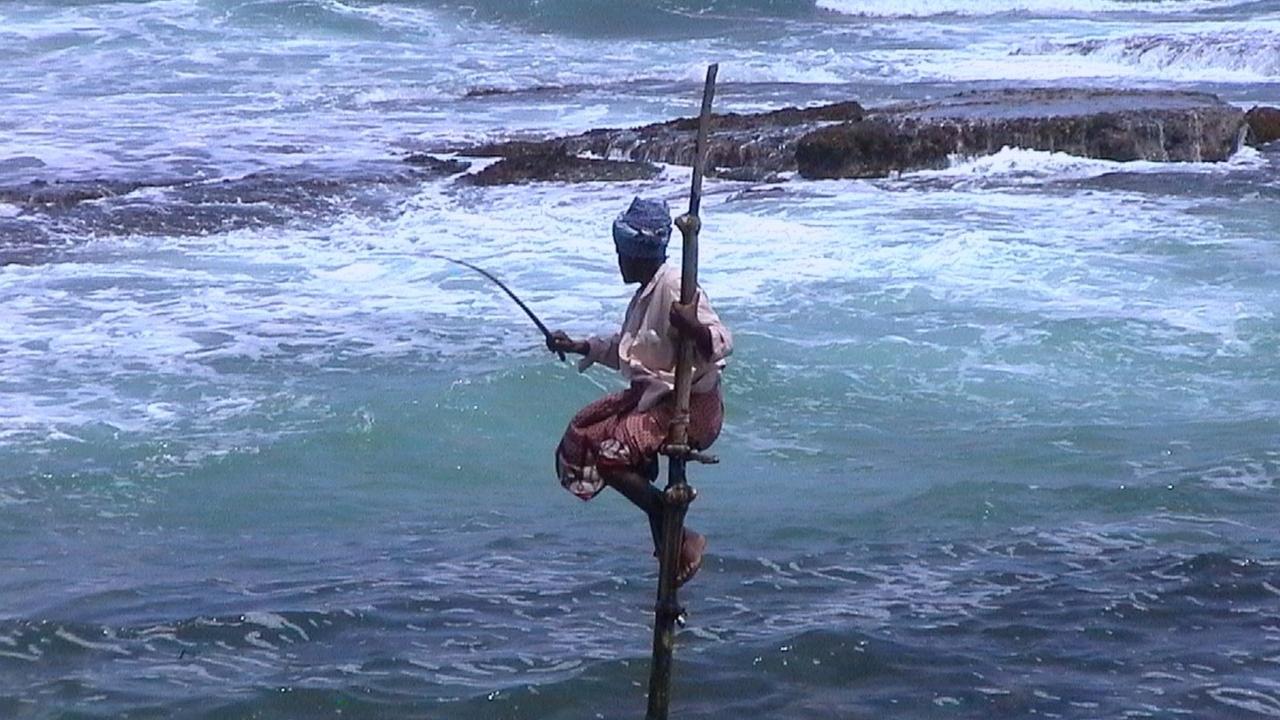As with any popular tourist destination, there are tourist traps in Sri Lanka that travelers should be aware of to avoid unpleasant surprises and maximize their experience. In this article, we'll explore some of the most common pitfalls encountered by tourists in Sri Lanka and provide you with practical tips for avoiding them.
- Trading pitfalls
1. Spice Garden
Pitfall: Spice gardens may seem attractive for experiencing local flavors, but often the products are priced excessively high, specifically targeting tourists.
How to avoid: Enjoy the visit to discover the spices, but refrain from purchasing. If you want to buy spices, prefer local markets where the prices are more authentic.
2. Stick fisherman
Pitfall: Many of these fishermen no longer actually practice traditional fishing, but instead wait for tourists for photos, then asking for money in exchange.
How to avoid: If you want to take photos, it's best to stay in the car.

3. TukTuk
Pitfall: TukTuk drivers tend to increase fares for tourists, knowing that they may not be familiar with local fares.
How to avoid: Always negotiate the price before boarding and try to get an idea of local rates from locals or your accommodation.

4. Street vendors
Pitfall: These sellers may sometimes sell products of questionable quality or even use aggressive sales practices.
How to avoid: Be aware of product prices and quality, and be prepared to negotiate if you are interested in a purchase. Also favor official stores or well-established markets for a better shopping experience.
5. Exaggerated prices
Pitfall: Some traders or service providers may offer inflated prices to tourists, relying on their lack of knowledge of local prices.
How to avoid: Do some prior research on the usual prices of local products or services. Negotiate with sellers if necessary and don't hesitate to compare prices in different locations.
6. Fake tourist attractions
Pitfall: Tuktuk drivers may have an incentive to recommend these places to tourists because they receive a commission or have a financial interest.
How to avoid: To avoid these pitfalls, it is essential to consult reliable sources such as reputable travel websites or trusted travel guides. Don't change your itinerary based on dubious recommendations if you don't trust them.
7. Invasive Guides
Pitfall: Some unofficial tour guides can be persistent and invasive, following you everywhere you go in hopes of selling you their services. Their information may be inaccurate or their intentions may be to lead you to shops or attractions where they receive a commission.
How to avoid: Before visiting a tourist spot, find out about authorized tourist guides in the area. If an unofficial guide follows you and harasses you, be polite but firm in refusing their services.
8. Tourist restaurants
Pitfall: In areas with high tourist traffic, restaurants can often serve lower quality food at higher prices.
How to avoid: Try venturing off the beaten path to discover authentic local restaurants offering delicious Sri Lankan specialties at more reasonable prices.
9. Gems and jewelry
Pitfall: There are many gem and jewelry stores in Sri Lanka, but not all of them are reliable. Be wary of sellers who claim to sell gemstones at very low prices.
How to avoid: It is best to buy from reputable stores and require a certificate of authenticity for gems.

- Unethical tourism practices
1. Animals in captivity
Pitfall: Many people at tourist spots put on shows featuring captive animals, including elephants, monkeys and snakes. These practices can often involve the exploitation and inhumane treatment of these animals, thereby compromising their welfare and health.
How to avoid: When visiting Sri Lanka, avoid street performances involving monkeys, elephants or snakes. When you pass by them, go your way and don't give money, you will have the opportunity to observe the same animals in their natural habitat or in ethical sanctuaries, respecting the well-being of the animals.
2. Elephant orphanage
Pitfall: Often presented as rescue centers, some elephant orphanages actually exploit the animals for tourist profit.
How to avoid: Look for organizations that have a strong reputation for animal welfare and favor sanctuaries that prioritize the rehabilitation and protection of elephants rather than tourist entertainment. We have selected for you associations which respect animals and whose well-being is respected. For more information, do not hesitate to contact us.

3. Boat trips
Pitfall: Some unscrupulous companies may pursue animals aggressively, disrupting their natural behavior.
How to avoid: If you plan to take a boat trip to watch whales or dolphins, make sure you choose a reputable company that follows marine wildlife protection rules. We have selected for you associations which respect animals and whose well-being is respected. For more information, do not hesitate to contact us.